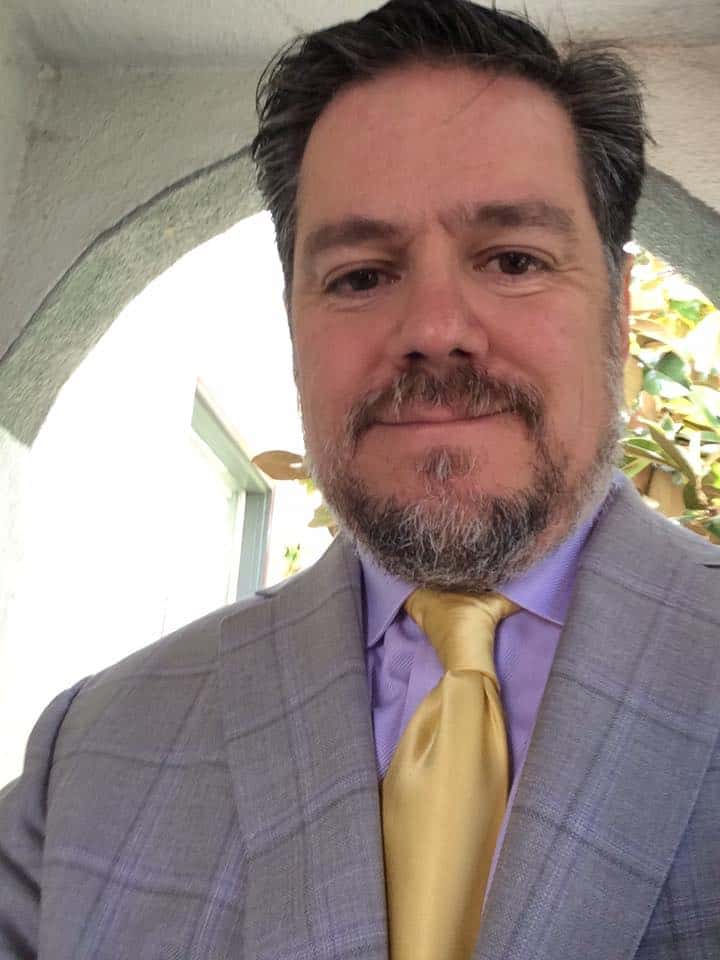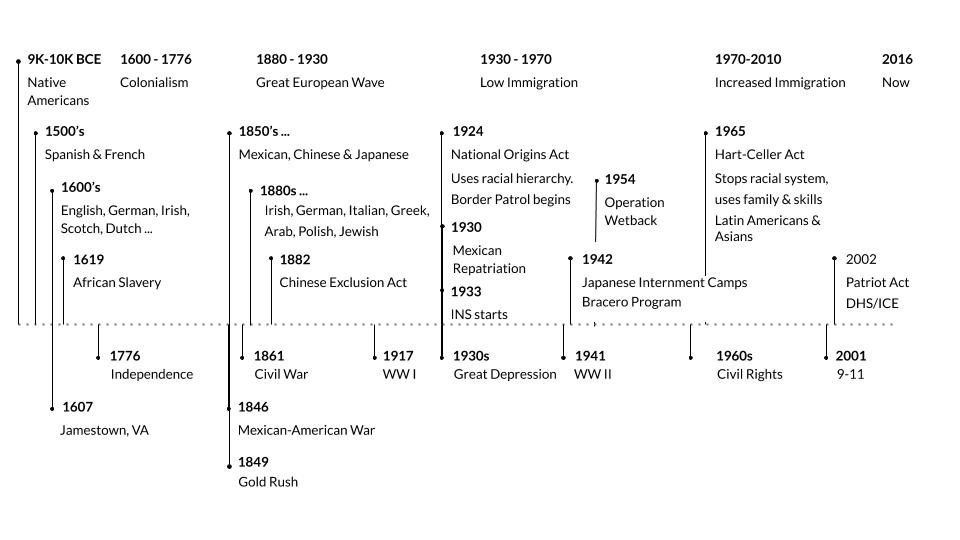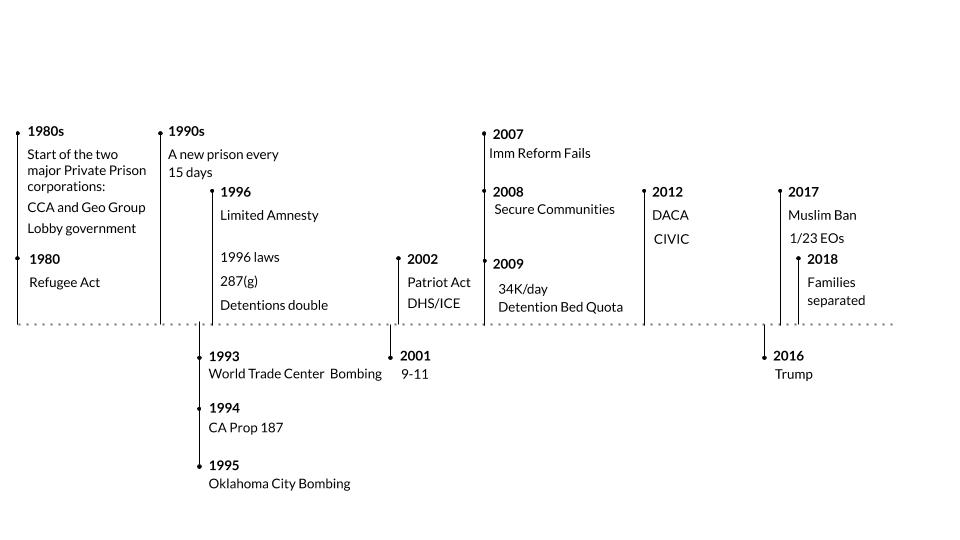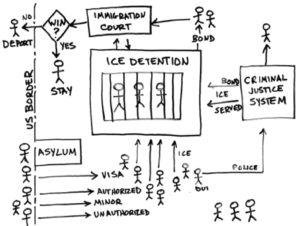Who We Are
These are our core values, the journey that led us here, our team, and the context we operate in.
OUR MISSION
Help Detained Immigrants (HDI) aims to ease the suffering of detained immigrants by providing compassionate support on issues ranging from legal rights to communicating with their families.
Our Story
Help Detained Immigrants was born out of the work of immigration activist Rodrigo Torres. A US/Mexican dual citizen deeply concerned about the human rights of those who choose to immigrate, in 2016 Rodrigo became a part-time volunteer for Freedom for Immigrants (FFI, formerly CIVIC) and other related organizations. He was driven to understand the detention/deportation pipeline – how people are moved through it, and what can be done to best alleviate harms they are suffering within the system. Through his work advocating for and aiding immigrants being held in detention, he became aware of a major gap in services for detained immigrants – there were plenty of organizations operating on a policy level, and many doing legal casework for immigrants, but immigrants didn’t have access to basic information and support in navigating their incarceration. Help Detained Immigrants works to create processes to fill those gaps.
The Team

Rodrigo Torres
Founder
Rodrigo is a dual US/Mexican citizen driven to offer compassioante care to detained immigrants. A full-time non-profit technical director by day, Rodrigo spends many waking moments focused on the needs of those he serves in a volunteer capacity.

Linda Olvera
Activist
Linda Olvera is a long time immigration activist in the Bay Area. She has worked with: Discrimination Law, Labor Conditions & Wages, Apprenticeships, Bilingual Education, Latino Issues, Animal Protection, Outdoor Wilderness for Kids, and is a Civic Activist.
Samara Hayley Steele
Advisor
Samara Hayley Steele is a co-founder of Solidaridad on los Niños and has worked on a number of activist projects. She is a PhD student in Cultural Studies at UC Davis.
Historical Context
We operate in a complex historical context that defines much of the work we do. We recognize and hold up this history because only by acknowledging the whole of the problem can we come to a solution.


Timeline images created by Rodrigo Torres
Introduction
Immigration in the US has always been a tale of two stories. There is the bright beacon of freedom (Give me your tired, your poor /Your huddled masses yearning to breathe free), and the long history of otherization and oppression of nearly every recent wave of immigrants including Africans, Irish, Germans, Greeks, Jews, Chinese, Japanese, Latino Americans, Middle Easterners.
Legal vs Illegal
The legality or illegality of immigration in the United States has changed over the years depending on whom it benefited. As the country grew, it needed a population and a source of cheap labor, so immigration was not only allowed but also encouraged. The concept of illegality was created to exclude and exploit.
1882: Chinese Exclusion Act
Lasted 10 years, shut the door on Chinese immigration, and made Chinese immigrants permanent aliens by excluding them from U.S. citizenship.
1896-1965: Jim Crow Laws
Jim Crow laws were laws in the southern United States which enacted and codified racial segregation against African Americans, whose families had a history of being subjected to forced migration through slavery.
1942: Japanese Internment Camps
During World War II, laws forcing relocation and incarceration in camps of over 100,000 Japanese people.
1954: Operation Wetback
Law enforcement initiative to deport over 1 million Mexicans.
1980s to Present: Mass Immigrant Detention
Laws and policies that now put over 400,000 people in immigration detention (4x Japanese internment).
Present Day

Trump capitalizes on racial resentment. Zero-tolerance policy tent encampment in Tornillo Texas, Port of Entry, June 2018. Family separation was the new practice of separating parents from their children at the border while parents were detained. There are over two hundred detention centers in the US. $2 Billion spent by taxpayers per year
Contact Us
For questions about our organization please use this contact form.
Si necesitas ayuda puedes contactarnos con este formulario.
